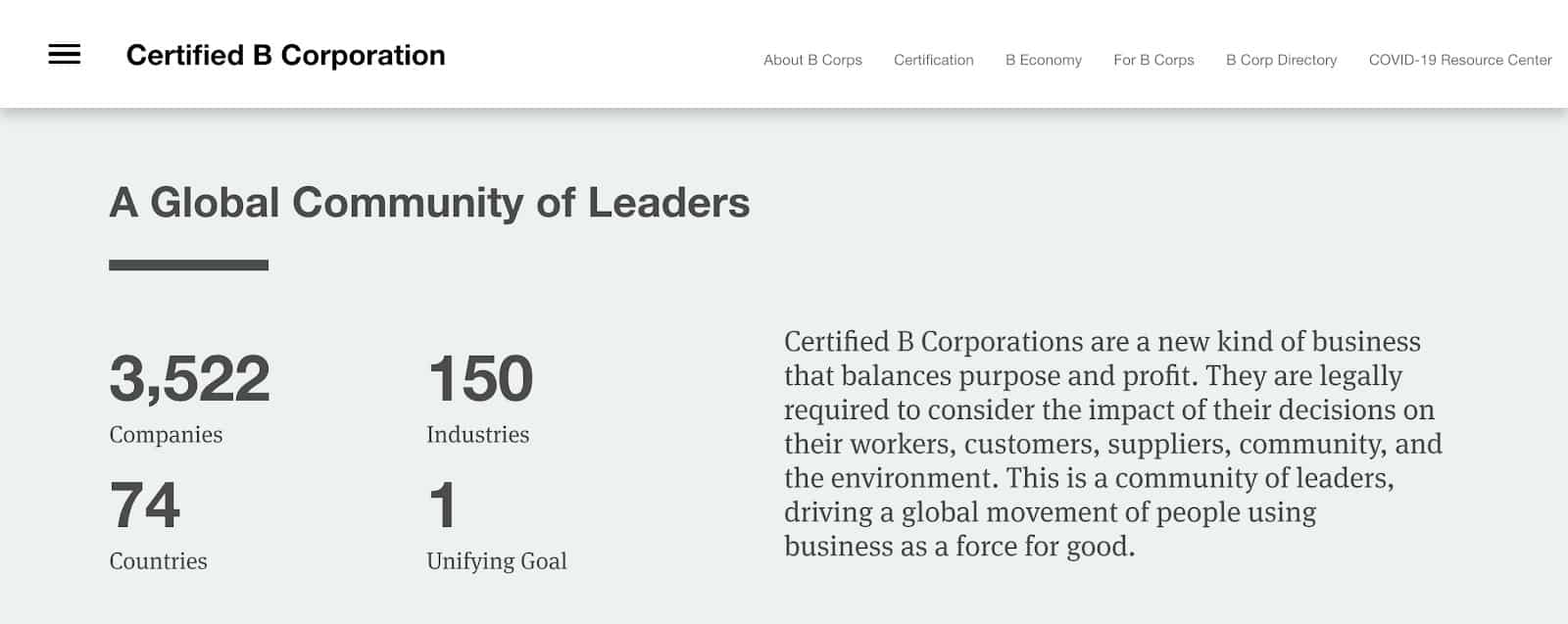What is social entrepreneurship? Does the term refer to social media businesses? (No.) Is it something to do with networking? (Nope.)
In short, social entrepreneurship is an exciting way to make a positive difference in the world while also making a profit.
It almost sounds too good to be true, right? Thankfully, it’s not.
In this article, you’ll learn everything you need to know about social entrepreneurship. We’ll explore how it works, its benefits, examples, how to start a social enterprise, and more.
Let’s get to it.
What is Social Entrepreneurship?
Social entrepreneurship is the process of doing business for a philanthropic cause. Social enterprises seek to maximize profits while growing their positive impact on a particular social issue. These organizations are legal businesses that make money. However, much like a charity or non-profit, social enterprises focus most on benefiting society.
4 Types of Social Entrepreneurship
Social entrepreneurship is a broad term that includes many different types of organizations. To help illustrate how it often manifests, here are four common types of social entrepreneurship.
1. Cooperatives
A cooperative is a business that exists to benefit its members by meeting their social, economic, and cultural needs, such as community grocery stores and credit unions.
2. Social Firms
Social firms are businesses that provide employment opportunities to groups of people who face significant disadvantages in the labor market, such as the disabled.
3. Socially Responsible Companies
Socially responsible companies are businesses that conduct day-to-day operations in line with a social mission. For example, outdoors brand Patagonia creates repairable products from socially responsible sources.

4. For-Profit Businesses with a Social Impact
This type of social entrepreneurship refers to profit-focused businesses that support social causes through donations and raising awareness. For example, glasses brand Warby Parker donates glasses and other health supplies to those in need.
5 Benefits of Social Entrepreneurship
By nature, social enterprises dedicate a proportion of their profits to positively impacting the world. At first, this could seem like a disadvantage in business, as social enterprises will have less money than competitors do to reinvest into scaling the business.
However, there are many benefits of social entrepreneurship that can give social enterprises an edge over regular businesses. Here are five of them.
→ Click Here to Launch Your Online Business with Shopify
1. Meaning and Unity
It can be pretty tough to motivate employees if the main goal is to make more money for business investors.
However, many people care passionately about social issues, such as racism, sexism, poverty, and human rights. As a result, social entrepreneurship makes it easy to rally people around a common cause.
Meaning and unity can help keep social entrepreneurs and employees focused, driven, and determined to succeed.
2. Impactful Branding
Social entrepreneurship exudes goodwill and altruism. This energy can help attract consumers who feel good when purchasing from a company trying to improve a social issue.
Especially when, according to Deloitte’s 2018 survey on The Rise of the Social Enterprise, a whopping “86% of millennials think that business success should be measured in terms of more than just financial performance.”
Blake Mycoskie, the founder of the social enterprise shoe brand, TOMS, said:
“Our customers get excited to be a part of what we’re doing. If you ask anyone wearing Toms how they first heard about us, most won’t mention an advertisement; they’ll say a friend told them our story.”
3. Positive Press Coverage
Social enterprises have the opportunity to tell brand stories that capture the hearts and imaginations of publications and influencers who have enormous reach. These stories can help social enterprises acquire free promotion that can help to skyrocket them to success while raising awareness of their social cause.
4. Opportunities to Form Strategic Partnerships
Thanks to their shared missions, many social enterprises partner with charities, government organizations, and other for-profit companies. These partnerships help social enterprises to increase their impact, grow their brand presence, and of course, drive profits.
5. Certifications, Grants, and Support Systems
Many organizations exist to support social enterprises in the form of grants, investments, or certifications.
For example, social enterprises can apply for Benefit Corporation status.
This B-Corp certification helps social enterprises establish and maintain credibility through a commitment to transparency and ethical operations. Among other benefits, the certification can help social enterprises to differentiate themselves from competitors.

What Is a Social Entrepreneur?
A social entrepreneur is someone who starts a business as a way to create a positive impact on a social issue. Or, as Jean-Philippe Courtois, Executive Vice President of Microsoft Global Sales, said, “Social entrepreneurs are people who have amazing passion to do good.”
Unlike regular entrepreneurs, social entrepreneurs have two key goals. Lauren Bush, the CEO and co-founder of FEED Projects, explains: “Being a social entrepreneur is a balancing act between growing and sustaining a business while also growing the company’s ability to give back.”
What is the Primary Goal of the Social Entrepreneur?

The person who coined the term “social entrepreneur,” Bill Drayton, said, “The life purpose of the true social entrepreneur is to change the world.” However, social entrepreneurs often measure their success based on a triple-bottom-line: social, environmental, and economical.
- Social: The business’s ability to create positive change, and its impact on social issues.
- Environmental: The business’s environmental impact and carbon footprint.
- Economic: Social enterprises need to turn a profit to continue to operate and grow.
3 Inspiring Social Entrepreneurship Examples
Here are three social entrepreneurship examples to help illustrate the qualities and characteristics of this type of business.
1. TOMS
TOMS is arguably the poster-child of social entrepreneurship.
Founded in 2006 by famous social entrepreneur Blake Mycoskie, this social enterprise was the original one-for-one company – for every pair of shoes sold, another pair would be given to a child in need.
Since 2006, TOMS has donated more than 100 million pairs of shoes.
In 2011, this social enterprise launched TOMS Eyewear to help provide media treatment and glasses to those in need. And in 2014, the company launched TOMS Roasting Co. to help bring sustainable water systems to people who lack access to safe water.
Today, for every $3 it makes, the company gives $1 to improve social issues.
2. LSTN
LSTN Sound Co. sells premium headphones online and donates a proportion of its profits to the Starkey Hearing Foundation to help restore people’s hearing.
The business was founded by successful social entrepreneurs Bridget Hilton and Joe Huff after watching a video of a 29-year-old woman hearing herself for the first time.
So far, these top social entrepreneurs have helped provide hearing aids to more than 30,000 people around the world through the Starkey Hearing Foundation.
3. Love Your Melon
Love Your Melon is a social enterprise that exists to improve the lives of children battling cancer. Specifically, the company sells hats and donates 50% of its profits to support pediatric cancer research and patients.
To date, Love Your Melon has given more than 7.2 million dollars to the fight against pediatric cancer, and over 200,000 hats to children battling cancer.
10 Characteristics of Social Entrepreneurs
It can take a lot to create a sustainable social enterprise that makes a difference in people’s lives. Here are 10 common characteristics that can contribute to the success of social entrepreneurs
1. Business-Savvy
At their core, social enterprises are businesses. And for this reason, social entrepreneurs need to have the business knowledge to be able to succeed.
It’s vital that social entrepreneurs learn how to identify market demand, identify and study a target market, and create desirable products and services.
The New York Times bestselling author, Gayle Tzemach Lemmon, said, “A social entrepreneur finds market-based solutions for change. Because without a market-based solution, without a sustainable solution, you go nowhere.”
Social entrepreneurs also need to learn how to fund or bootstrap businesses and manage finances.
2. Hard-Working
Starting a business can be challenging enough. However, social entrepreneurs may face additional hurdles, such as distributing funds to social causes, managing transparency, and scaling with fewer profits to reinvest.
As a result, it should be no surprise that social entrepreneurs will need to work hard to get their dream off the ground and make an impact.
3. Tenacious
Sustainable business success never happens overnight. Social entrepreneurs need to be tenacious and persevere in the face of adversity if they want to make an impact.
4. Philanthropic
Social entrepreneurs aren’t driven by money or fame alone. Social entrepreneurs are philanthropic, care about helping others, and voluntarily distribute their profits to those in need.
This kindness and sense of mission are born from compassion – the ability to sympathize with others’ pain and feel a desire to alleviate it.
5. Collaborative
Social entrepreneurs rarely work alone. Instead, they collaborate with others to scale their impact. Social entrepreneurs may need to collaborate with co-founders, employees, consultants, investors, customers, charities, and local governments.

6. Inspiring and Passionate
Because collaboration is crucial to success, social entrepreneurs need to inspire and rally others to their cause. Their passion is key to convincing others to join the mission and help the social enterprise grow.
7. Connected
Social entrepreneurs are often very connected to their communities. This connectedness is part of the foundation of their compassion. Plus, with engaged networks of friends and colleagues, social entrepreneurs can find the right people to help them move their vision forward.
8. Counter-Cultural
Successful entrepreneurs tend to buck norms and carve their own paths. For example, many famous entrepreneurs are college drop-outs, such as Bill Gates, Steve Jobs, and Mark Zuckerburg.
Arguably, social entrepreneurs are even more counter-cultural. Unlike most business people, social entrepreneurs aren’t primarily in business for financial reasons. They have different values and aren’t afraid to boldly live by them.
9. Creative and Innovative
Making a positive difference to social issues is rarely a straightforward process. Social enterprises face many challenges requiring social entrepreneurs to be creative and find innovative solutions to problems.
10. Adaptable
As the scientist Charles Darwin said, “It is not the strongest of the species that survives, nor the most intelligent. It is the one that is most adaptable to change.”
Regardless of your view on evolution, this idea holds true in business. Time and time again, massive companies are conquered by newer, more adaptable ones – think Blockbuster Video vs. Netflix.
Social entrepreneurs must be incredibly adaptable to changes when trying to solve such challenging issues.
How to Start a Social Enterprise Step-by-Step
Want to become a social entrepreneur? If you’re wondering how to start a social enterprise, here are seven steps to help you get started.
1. Identify a Cause
First things first: You need to identify which social issue you want to help improve.
Do you want to help people gain access to clean drinking water, food, or medicine? Do you want to help the homeless, disabled, or those sold into modern day slavery?
There are countless social issues out there that need your help. Still, it’s best to start with one small mission and scale up from there. Remember, TOMS began by trying to provide shoes for underprivileged children – only after some success did the company start branching out.
What cause do you care about the most?
2. Brainstorm Social Entrepreneurship Ideas
Social enterprises are businesses, so you need a way to make money to fund your mission.
Start brainstorming business ideas. You could sell a consulting service, create an app, start selling products online with Shopify (just like LSTN and Love Your Melon).

3. Strategize How to Make an Impact
Ideally, whatever you sell should complement or relate to your cause in some way. For example, you could:
- Adopt the one-for-one model, like TOMS and Warby Parker. Let’s say that you sell outdoor gear, you could donate a mosquito net to those at risk of catching malaria.
- Create jobs for people who struggle to find work in your community. For example, you could partner with disabled people in your community to create and sell crafts online.
- Sell ethical products. Perhaps you could start selling eco-friendly, organic, fairtrade products, and donate some of your profits to an environmental sustainability project.
If you plan to donate money to a charity or non-profit, you’ll need to conduct some research to find a suitable organization that aligns with your vision.
4. Bring Everything Together and Iron Out the Details
Next, you need to dig into the details by asking questions such as:
- Where will I source products from, and what will the costs be?
- What will my margins be, and how much of my profit will I use to help the social cause?
- How will I measure the success of my social enterprise?
Then, put together an elevator pitch to help you crystalize the “what,” “why,” and “how” of your social enterprise. This pitch will serve as the foundation of your business and branding.
As Blake Mycoskie, the founder of TOMS, said, “Make sure to give your business a background, a mission, and a story. That might be the most important part of any venture.”
5. Test Your Idea
Before you invest in your social entrepreneurship idea, make sure to run a few tests.
Eric Ries, the author of The Lean Startup, said, “We must learn what customers really want, not what they say they want or what we think they should want.”
Test the products you plan to sell, promote your idea and brand on social media, and sell a small batch of products to gather feedback.
6. Find Social Entrepreneurship Funding or Start Bootstrapping
If you’re an experienced entrepreneur, you may want to pitch investors to find social entrepreneurship funding. Alternatively, you could consider crowdfunding your business.
However, if you’re new to entrepreneurship, consider bootstrapping your business. This means starting it yourself with very little (or zero) investment upfront.
7. Get the Word Out
Now it’s time to start marketing your social enterprise and land some sales. There are plenty of ways to do this, such as:
- Social media marketing: Share your mission updates, get involved in conversations about your target social issue, and promote your products.
- Content marketing: Write blog posts, create infographics, or produce videos. Create content that tells your brand’s story and inspires people to rally around the cause you’re trying to help.
- Events: Create community-driven events and fundraisers to help raise awareness of the social issue and your brand.
- Public relations (PR): Reach out to local news and media platforms, online blogs, and influencers with a carefully crafted pitch. Tell your story and the stories of the people you’re trying to help and ask them to mention you and your social mission.
Summary: Social Entrepreneurship
Social entrepreneurship is the process of starting and growing a for-profit business to impact social issues positively.
There are many different types of social entrepreneurship, including:
- Cooperatives
- Social firms
- Socially responsive companies
- For-profit businesses with a social impact
Social entrepreneurs are individuals who start businesses to help a particular social cause. Many of the best successful social entrepreneurs share similar characteristics that enabled them to succeed. For example, they’re often:
- Business-savvy
- Hard-working
- Tenacious
- Philanthropic
- Inspiring and passionate
- Collaborative
- Connected
- Counter-cultural
- Creative and innovative
- Adaptable
Finally, here are seven steps to help you start a social enterprise:
- Choose the cause you want to help
- Come up with a complementary business idea
- Plan how to use your business idea to make a difference
- Clarify your strategy and iron out the details
- Test your business idea to ensure there’s market demand
- Start funding or bootstrapping your social enterprise
- Begin marketing your social enterprise to generate sales
All in all, social entrepreneurship provides a brilliant vehicle for entrepreneurs to create meaning, purpose, and financial abundance. So, if you want to become a social entrepreneur, go for it!






